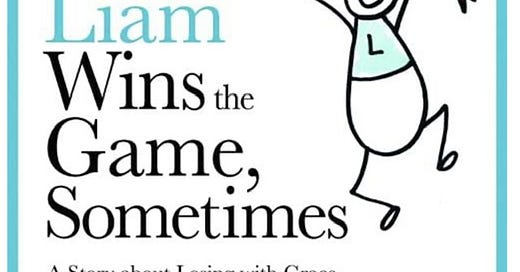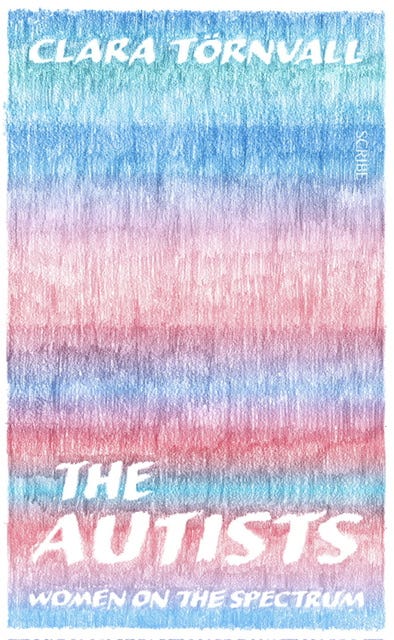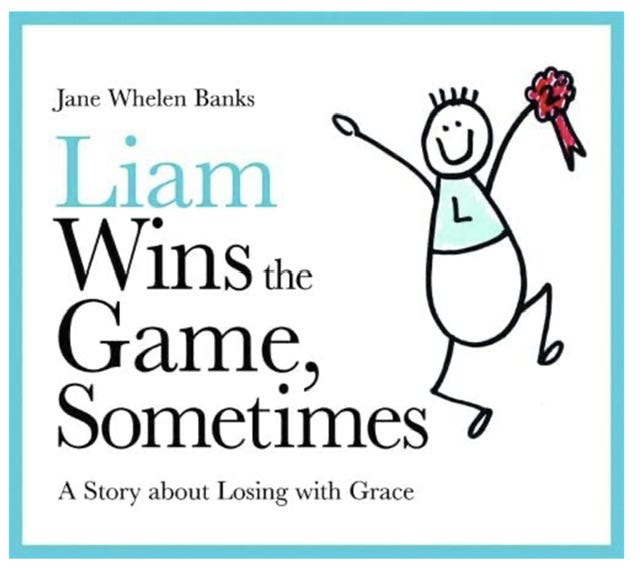Having done fifty of them, I’m taking a break (and giving you one!) from How We Homeschooled Today. It might be back, possibly on an occasional basis. We’ll see. Feedback welcome!
I’m very grateful to Renee for getting in touch with this glimpse into a day homeschooling with her son. It made me realise this is the first mention of any type of neurodivergence on the blog—not entirely surprising because it’s not something I have personal experience of, so I am pleased to be able to share a different perspective and would be glad to hear from others with this sort of experience.
Coincidentally, my husband recently read and loved The Autists: Women On The Spectrum. You can read his review here.
For us, it’s nearly the end of homeschooling (called ‘home education’ in the UK, where we live) for the year. My son Johannes is autistic, and my younger daughter attends a state (public) school here.
Yesterday morning, we attended a boardgame group for home ed kids of secondary school age (around 11 up). At 11, Johannes is the youngest of the group.
Normally we have a pretty good time with the occasional struggle. Yesterday, I think, went particularly badly. Midway through the game Johannes had lost most of his cards and started crying. He wanted to complete the game though, and in the end placed third out of four—I think after one of the parents playing threw the game to salve his feelings.
When we got home coincidentally I noticed I have this kids’ picture book, Liam Wins the Game, Sometimes, out. It was in my ‘sell’ pile. I got it when Johannes was four, before I knew he was autistic. I warned him it was preachy, but he read it anyway. He liked a page that explained why it was wrong to cry after losing a game, but hated the page that just outright told you that you shouldn’t. The drawings are terrible, but at least the in-book game was amusing.
Before lunch I just let him chill in his room. During school hours (9-3) Johannes isn’t allowed to play video games or watch shows (unless they’re educational ones we watch together, which we only do rarely.) Normally this means he reads. (Though he’s also allowed to draw or write I haven’t known him to do it spontaneously.) Yesterday he was reading the second Lockwood & Company book, which he loves.
Johannes’s grandparents are staying with us this week, so after lunch, all four of us went to see the special exhibition at a local art and archeology museum. I had previously seen the curator’s tour, so for Johannes I highlighted the important parts of the exhibit. There were some Greek letters inscribed on a rock and I asked him if he recognised any; sigma, but he mistook a capital delta for a rho.
We had a wobble when Johannes was doing a children’s activity and an older lady had sat down next to him to do the activity. He turned and asked her a question thinking she was me, and then was upset at me for ‘wandering off’. I guess he was embarrassed having talked to a stranger. (I was about 3 feet away looking at the exhibit.) Overall though we had a really good time.
We left earlier than the grandparents, had a look through the gift shop (Johannes didn’t want anything) and went home. And that was all we did!
Today we had perhaps a more typical day to start, with more book work. For maths and English I use the CGP workbooks. They’re very affordable and I essentially use them as a complete curriculum. Each page has a brief explanation of the topic, and then a written activity below. Sometimes we have to find a video on YouTube if the explanation included isn’t sufficient, but this is less often the case.
In the morning we left to go to the library, partially to return books (we had some due, and he had finished his novel) but also to do book work somewhere other than his desk. Typically when Johannes works, I do as well. Today I’m not working though, I’m just writing this!
We accidentally finished year 6 maths very early (about halfway through the year) so all we have left of the CGP workbooks is English. Today Johannes is doing the very last page of his year 6 grammar, punctuation, and spelling book. I’ve also brought along a year 6 reading comprehension workbook. We might not finish it by the end of the year but because it’s basically the same throughout, I’m not super worried about it. I did want to make sure we finished all the year 6 grammar concepts.
I have also brought along a times tables workbook. We had Johannes take his KS2 SATS maths exam a few months ago (not officially, but proctored by us at home), since we had completed the work. In the UK children get a standardised exam called SATS (not to be confused with the SAT given to American high schoolers) at year 2 (ages 6-7) and year 6 (ages 10-11).
Johannes did quite well on the exam, but the one he did worst on (there are three parts to the maths exam) was one where having memorised his times tables would have been quite helpful. So it’s an area for improvement.
At any rate, we didn’t get to the times table book. After finishing both the grammar and the reading comprehension, we packed up and went home from the library. I had volunteering in the afternoon so I handed him off to his grandparents for the rest of the school day.
Tomorrow is the last day of term, and we’re having a tutor. The tutor has a degree in psychology, and he works with Johannes on social and emotional health related topics.
I’ve noticed sadly that science, my favourite topic, was not included in these last two days. It’s partially because we finished the textbook I was using (free: 5th grade science). (Year 6 in the UK is roughly equivalent to 5th grade in the US.) We recently started Khan Academy middle school biology, but because it’s a bit too late in the year to finish, I haven’t been pushing it. We also often do nature walks.
Also not included these last two days are the things Johannes does with his dad; electronics and coding (though I sometimes assist with the coding, too, usually when my husband has assigned him work that’s way too difficult for an 11 year old and I need to help him!)
If you’re a new sign-up, you might like to have a look at some previous special guest editions:
Mary-Ann Horley’s account of home education at home and away.
Allyse Hopkins’ very relatable day with her family of four in New Zealand.
Susie Wales’ life with her three boys in Florida.
Rachael Ringenberg’s thoughtful glimpse into her life with four girls in Vermont.
Joel Bowman’s ‘away schooling’, travelling around the classical world with an eight year old.
And here’s Henry’s book review if you were planning on getting to that next:
If you’d like to be my next special guest, get in touch!







Great guest post. I have to go back to read the others as I may have missed when they were originally posted. My sister is the director/founder of a school for autistic children in northern Arizona. My dream is to one day teach at the school with her.
Regarding the 50th, Catherine... I don't want this blog to go anywhere! It is so wonderful! How to learn, how to teach, how to get down to work--these are timeless issues.
We are not homeschoolers ourselves but my wife and I talk about it a lot lately. And you've introduced me to many wonderful resources. So, congrats on 50, but not too much congrats. Keep on truckin'! Even occasional posts would be helpful to those of us floundering in the muddy waters.
Such a good idea to go to the library, Renee, for bookwork. That’s an idea I’ll be tucking away for when my kids are a little older.
And I second what Susie said: I love reading your daily learning notes Catherine, and I’ll be looking forward to reading whenever you share.